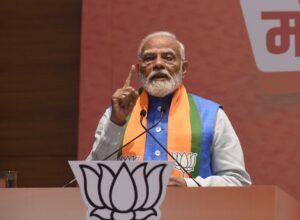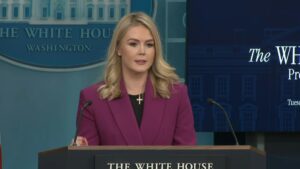Syrians in rebel enclave alarmed by UN aid deadlock
Batabo, Syria (AFP):
Syrians in the country’s last rebel enclave expressed alarm Wednesday after the United Nations Security Council failed to renew an aid delivery mechanism to the area, imperilling critical humanitarian assistance.
The UN largely delivers relief to northwest Syria via neighbouring Turkey through the Bab al-Hawa crossing, but the deal to do so expired on Monday.
Russia on Tuesday vetoed a nine-month extension of the agreement, and then failed to muster enough votes to adopt just a six-month extension, during a vote at UN headquarters in New York.
From a bleak displacement camp near the town of Batabo in the Idlib bastion, Ghaith al-Shaar, 43, expressed dismay at the political bickering and the crushing impact any interruption to aid supplies could have on his family.
Without the UN assistance, “it’s impossible for anybody to cope, particularly if they have children”, said the father of five, who was displaced from Damascus’s Eastern Ghouta area five years ago.
“Even though it was just simple assistance, it helps support us,” Shaar said.
Syria’s conflict has killed more than 500,000 people, displaced millions and battered the country’s infrastructure and industry.
The 15 Security Council members had been trying for days to find a compromise to extend the cross-border aid deal, which since 2014 has allowed for food, water and medicine to be trucked to northwestern Syria without the authorisation of Damascus.
‘Political issue’
Damascus regularly denounces the aid deliveries as a violation of its sovereignty, and Russia has been chipping away at the deal for years.
Moscow is a major ally of Damascus, and its intervention in Syria since 2015 has helped to turn the tide in the regime’s favour.
Shaar, who receives food, medical and other assistance from international organisations, expressed anger at the Russian veto.
“Russia forced us from our homes and today it is… turning humanitarian assistance into a political issue,” he charged.
The cross-border aid accord originally allowed for four entry points into rebel-held Syria before being reduced to one — Bab al-Hawa — after years of pressure from China and Russia at the Security Council.
Bab al-Hawa crossing is controlled on the Syrian side by Hayat Tahrir al-Sham (HTS).
After a deadly earthquake in February, Syria agreed to open two additional crossings, which are in areas under the control of Turkish-backed rebel forces.
Authorisation for those two crossings is set to expire in mid-August.
But Stephane Dujarric, spokesman for the UN secretary-general, warned Tuesday that those two crossings “cannot match” Bab al-Hawa, which handles 85 percent of the aid.
“That door is shut right now,” said Dujarric, noting that “UN agencies did preposition supplies… to ensure that humanitarian needs will continue to be met in the immediate future”.
‘War on food?’
The UN says more than four million people are in need in northwest Syria, while it and its partners have been reaching 2.7 million people a month with aid there.
Since the quake, more than 3,700 UN trucks carrying aid have crossed through the three checkpoints.
Most have passed through Bab al-Hawa, including 79 on Monday.
Save the Children’s Kathryn Achilles warned that “the lives of millions of children are entirely dependent on aid through the Bab al-Hawa crossing”.
“The UN Security Council must urgently reconvene and reverse this fatal decision,” she said in a statement.
Russian representative Vassily Nebenzia on Tuesday accused Western countries of “artificially” provoking Moscow into vetoing.
He also threatened to “close down” the aid delivery mechanism if support for his country’s proposed six-month renewal was not forthcoming.
At the displacement camp near Batabo, Jaziyah al-Hamid, 55, expressed distress at the Russian position.
“Do they want to fight us for our food?” asked Hamid, who lost her husband and daughter in the earthquake and now lives with her five children in tough conditions.
She said that even the little assistance she has been receiving helped her family cover the bare minimum.
“We want more aid,” not less, she said. “Russia must not close the crossing.”








